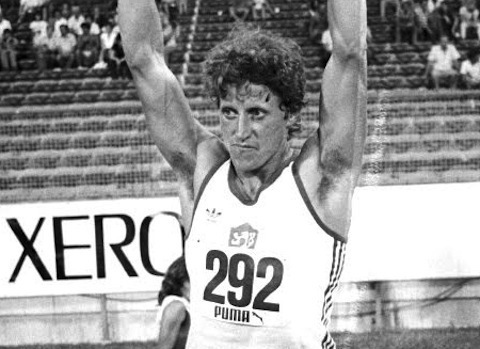Reality Check

Compared to the Games of the late Cold War, when steroids were integral to athletic success, this year’s Olympics will be remarkably clean. Yet we also know that drug use has not vanished—how could it, give the rewards at stake at the ultra-competitive nature of those tempted to use? The big question is what percentage of cheats are ensnared by the current testing regime.
A definitive answer is impossible, of course, but a little light was shed by an email I recently received from an elite track-and-field athlete—not an Olympian, but someone who competes at the very highest levels of their sport. I promised to protect this person’s identity, for what they had to say was fairly damning, if somewhat hyperbolic:
In the past 8 months, I have been tested outside of competition six times by the USADA. I can only imagine how often USA Track & Field’s top stars are tested. In most countries (e.g. Belarus, Jamaica) they don’t even have a real agency like USADA to conduct Out of Competition tests. Sure, when an athlete wins an event at the Olympics, they get drug tested, but that doesn’t mean the person didn’t use steroids the entire year beforehand and simply stop using them in time for the drugs to clear his/her body at the Olympics. The science, which can be easily ascertained by a chemist or doctor is such that an athlete could still be retaining all of the physical advantages of the drugs without the metabolites appearing in their urine. The fact that most athletes around the world have less than a 0.1% chance of getting tested outside of the Olympics or World Championships is not a deterrent at all. Very few countries have the robust out-of-competition testing regimen that the United States has.
Something needs to be done outside of the Games themselves to ensure a level and fair playing field. If the IOC truly cared about this issue, they would mandate that an athlete have a certain number of random, out of competition tests with a year, six months, and three months from the Olympics.
Digging a bit deeper into the statistics for track-and-field athletes, it seems that my correspondent’s 0.1 percent figure was a bit low. But when I pinged him back with a correction, he made an important observation about the ease with which tests can be skipped:
I know that in the US, if you miss more than three out-of-competition tests during an 18-month period that it is the same as a positive test and you receive a suspension. I know many athletes in other countries go to “training camps” in places like South Africa for weeks or months at a time during the off-season and may not report their whereabouts to avoid testing officials.
The upshot is that elite athletes in many countries have the odds in their favor should they elect to enhance their performance with drugs. The penalties for getting caught are extreme—one could lose everything, as lengthy bans are the norm. But if you’re smart about your intake and your national sports authority doesn’t give a damn about testing, you may only face a one in ten chance of detection. After dedicating your whole life to an arcane pursuit, and knowing that drugs could provide just the boost you need to achieve athletic immortality, who wouldn’t take that risk?




